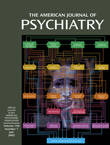Safety of Vagus Nerve Stimulation With ECT
Ms. A, a 50-year-old woman with a 20-year-history of recurrent major depressive disorder, had had eight previous episodes of severe depression. She had had multiple trials of antidepressants, mood stabilizers, and antipsychotic medications and had achieved inadequate response. Over 16 years she had received seven courses of short-term ECT and had achieved adequate response; she experienced mild cognitive impairment as the only complication. Her improvements were brief, and maintenance ECT was unable to sustain the response.Ms. A then underwent implantation of a NeuroCybernetic Prosthesis vagus nerve stimulator (Cyberonics, Houston) at our center. She remained stable for the next several months. She then developed a recurrence of severe depression. She received acute bilateral ECT with a stimulus dose (225 millicoulombs) 1.5 times the seizure threshold. The initial four ECT sessions were given with the vagus nerve stimulation generator turned off. Ms. A showed a slower response than with previous ECT treatments; therefore, the latter five treatments were administered with the vagus nerve stimulation operating at 0.75 A. Labetalol, 15 mg/day; methohexital, 100–120 mg/day; and succinylcholine, 100 mg/day, were administered during each treatment. Ms. A’s depression improved; her score on the Hamilton Depression Rating Scale (21-item version) decreased from 26 at baseline to 3 by the end of the treatments.During ECT sessions 1–4 (with the vagus nerve stimulator off), the mean increase in Ms. A’s heart rate was 31 bpm, and the increase in her systolic blood pressure was 32.5 mm Hg. During ECT sessions 5–9, the mean increase in heart rate was 26 bpm, and the mean increase in systolic blood pressure was 40.4 mm Hg. Ms. A’s score on the Mini-Mental State Examination remained at 29–30 during these treatments.
References
Information & Authors
Information
Published In
History
Authors
Metrics & Citations
Metrics
Citations
Export Citations
If you have the appropriate software installed, you can download article citation data to the citation manager of your choice. Simply select your manager software from the list below and click Download.
For more information or tips please see 'Downloading to a citation manager' in the Help menu.
View Options
View options
PDF/EPUB
View PDF/EPUBGet Access
Login options
Already a subscriber? Access your subscription through your login credentials or your institution for full access to this article.
Personal login Institutional Login Open Athens loginNot a subscriber?
PsychiatryOnline subscription options offer access to the DSM-5-TR® library, books, journals, CME, and patient resources. This all-in-one virtual library provides psychiatrists and mental health professionals with key resources for diagnosis, treatment, research, and professional development.
Need more help? PsychiatryOnline Customer Service may be reached by emailing [email protected] or by calling 800-368-5777 (in the U.S.) or 703-907-7322 (outside the U.S.).

